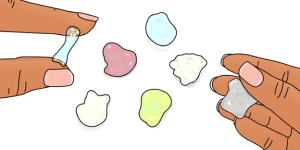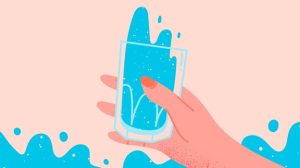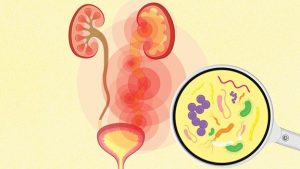Have you recently had a baby? First of all, congratulations!
Secondly, are you taking good care of yourself? If not, it’s time to make your well-being a priority again.
When was the last time you did something for yourself? If it’s been a while, keep reading. This post is all about simple ways to practice self-care in those early days of parenthood because you deserve it, mama!

Why is Self-Care So Important After Having a Baby?
Simply put, if you don’t take care of yourself, you won’t be able to properly care for your new little one.
Your body and mind have been through the wringer. You need time to rest and recharge between hormonal changes, sleepless nights, and round-the-clock caregiving. Accept help from loved ones, and don’t feel guilty about taking a walk or enjoying a warm bath. Your needs matter too.
Eating healthy, nutritious meals will boost your energy and mood. Have easy snacks on hand like granola bars, nuts, and fresh or frozen fruit to nibble on throughout the day. Staying hydrated is also key to recovery and milk production. Aim for 6-8 glasses of water per day. Also, choose the best cotton pads for periods in Pakistan so that you can stay comfortable and rest with ease.
In addition to this, exercise might be the last thing on your mind, but even light activities like going for a walk can release feel-good hormones and help combat postpartum depression. Start slow and listen to your body. Build up your strength and endurance over time.
You’ve got this, mama. By taking good care of yourself, you’ll be the best mom you can be. Your new baby is lucky to have you!
Practical Tips for Making Time for Yourself
Have you been so focused on your new baby that you’ve forgotten about yourself?
It’s time to make your well-being a priority again. Here are some practical tips to help you practice self-care in those early months of motherhood:
- After giving birth, your body has been through a lot. Make sure to schedule follow-up appointments with your doctor to check on your recovery and address any concerns. Don’t ignore symptoms like excessive bleeding or severe pain. Your health should be at the top of your list right now.
- When your baby is napping or sleeping, do the same. Take the opportunity to rest whenever you can. Sleep deprivation is no joke, so fit in catnaps or go to bed early. You’ll have more patience and energy to care for your little one when you’re well-rested. You need to choose proper maternity maxi thick pads to sleep without any fear of leakage.
- Eat a balanced diet and stay hydrated. Healthy snacks will give you energy and help avoid mood swings. Drink plenty of water to aid your recovery and milk production. Your body needs extra nutrition now, so fill up on whole foods like granola, nuts, and fresh fruit.
- Connect with other new moms. Call a friend or join an online community to talk about your experiences. Let loved ones bring you meals or help out with chores and errands. Accepting help will allow you time to adjust to this new chapter of life.
- Motherhood is a challenge, but also extremely rewarding. By making your self-care a priority in those first months, you’ll build a strong foundation to be the best parent you can be. Your baby will thrive because you thrive. You’ve got this! Focus on embracing this new beginning and nurturing yourself along the way.
Common Questions About Postpartum Self-Care
The early days after giving birth are a whirlwind of emotions, challenges, and new experiences. In the midst of it all, it’s easy to forget about your own well-being. But prioritizing your self-care postpartum is one of the best things you can do for yourself and your baby. Here are some of the most frequently asked questions new moms have about caring for themselves after childbirth.
How much rest do I really need?
Rest as much as humanly possible – aim for at least 8-10 hours of sleep per night, plus daytime catnaps when the baby sleeps. Your body just went through a major medical event and is recovering from pregnancy and delivery. Rest will help you heal, boost your mood and energy, and support breastfeeding. Don’t feel guilty about resting – it’s essential for your health and your baby’s well-being.
What kind of nutrition do I need?
Focus on nutrient-dense whole foods like lean proteins, healthy fats, and complex carbohydrates. Stock up on snacks like nuts, granola bars, protein shakes, and fresh or frozen fruit. Stay hydrated by drinking plenty of water – you’ll need extra to support breastfeeding. Limit caffeine and avoid alcohol. A balanced diet will aid your recovery, keep your energy up, and support breast milk production.
How can I find time for exercise?
Start light – go for walks with the baby in a carrier or stroller. Gentle yoga or pelvic floor exercises are also great options. Aim for just 10-15 minutes a day a few times a week. Exercise releases endorphins that improve your mood and help fight postpartum depression.
It also helps your body heal and regain strength. Any activity is better than none, so do what you can, and don’t be hard on yourself. Your body and baby will thank you!
Taking good care of yourself in the postpartum period may be challenging, but it will help you become the healthy, happy mom you want to be. Make self-care a top priority and don’t be afraid to ask others for help. You’ve got this, mama!
You’ve been through so much and deserve to put yourself first for a change. Don’t feel guilty about taking time for yourself. Make sure to stay connected to your support network, accept help when offered, and reach out if you need more support. Be gentle with yourself and know that you’re doing great.
This challenging period will pass, though the memories will last forever. For now, embrace this special time with your new baby and celebrate this new chapter of life. You’ve got this, mama! Take a deep breath and remember to prioritize your well-being. Choose the widest sanitary pads as your comfort companion and enjoy this amazing phase in your life!
Remember, your baby needs a happy, healthy you!







